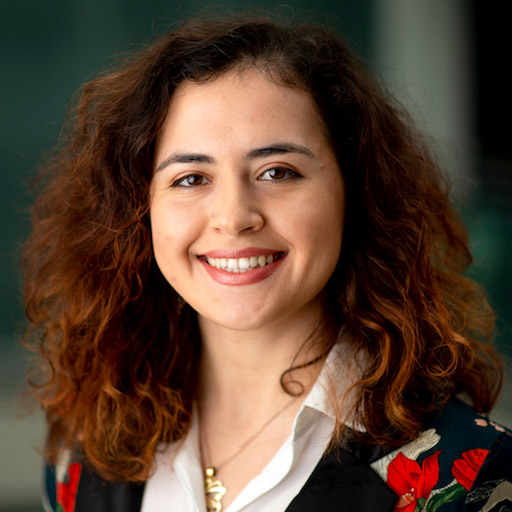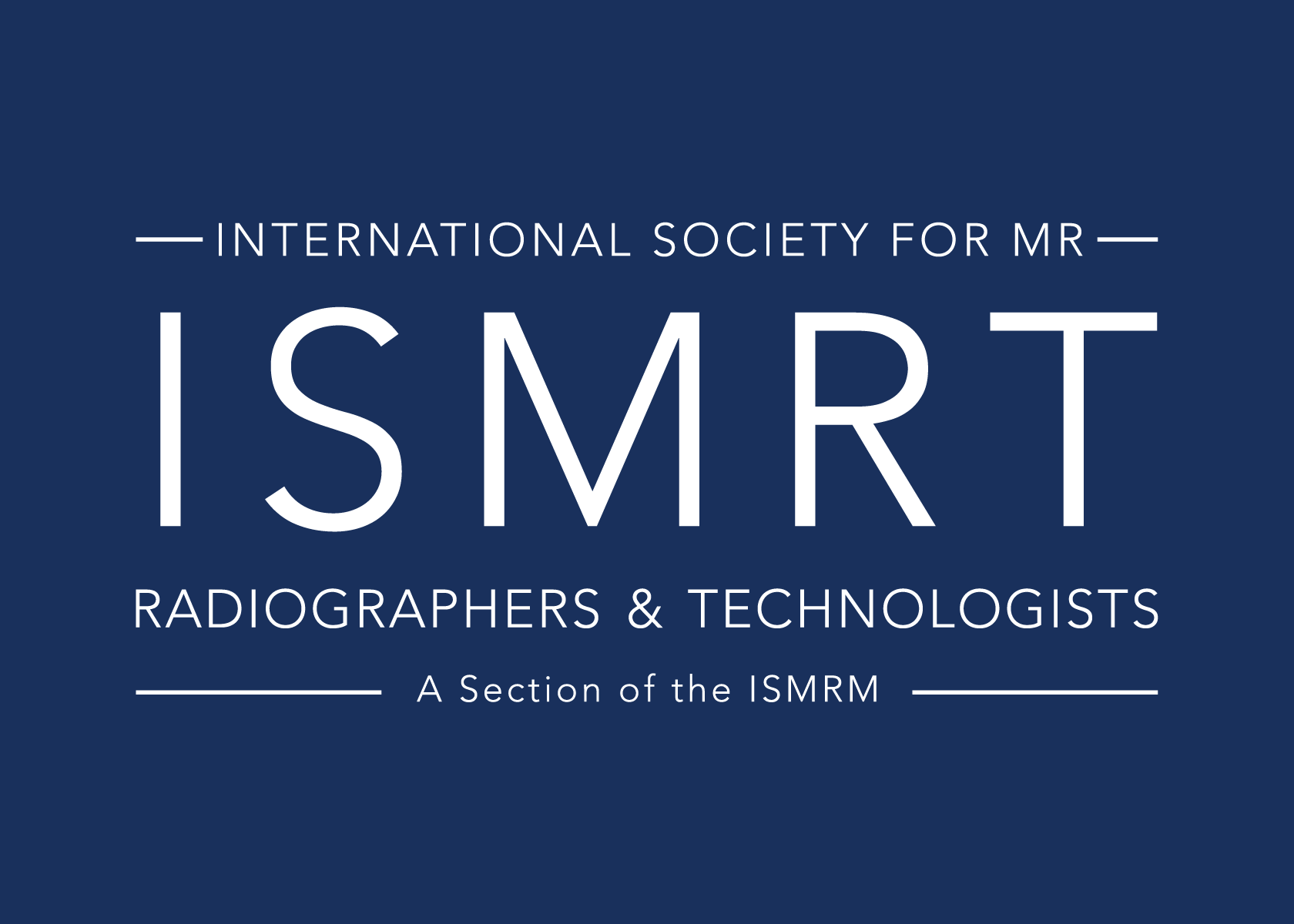
Member Spotlight for September 2022:
Nikou Louise Damestani

Nikou Louise Damestani, M.Sc., Ph.D.
Postdoctoral Research Fellow
Athinoula A. Martinos Center for Biomedical Imaging, Massachusetts General Hospital
Boston, MA, USA
ISMRM Member since 2017
I wish I could say I have always envisioned a career in MR, but I was actually incredibly fascinated by linguistics and learning languages for the majority of my school years. Additionally, I was, and still am, a huge fan of sci-fi TV shows and films, and I struggled to see how my science classes linked to the real world. I learnt about the amazing applications of physics in astronomy and medical imaging towards the end of my schooling, and from there I was sold on studying physics at university. I chose a medical imaging module during my undergraduate physics degree at King’s College London and specialized in neuroimaging for my master’s degree. I guess you could say I fell in love with another language!
The M.Sc. Neuroimaging course at King’s College London was incredible. Not only did we learn MR physics and analysis strategies, but we also had the opportunity to run our own studies with participants. We learnt how MR has been used to understand the brain as well as its current limitations as an imaging modality. I decided I wanted to be part of the community that sought to make MRI more accessible and further the equity of research. I was awarded the NIHR Maudsley Biomedical Research Center Ph.D. studentship, with a project focusing on reducing the acoustic noise of functional MRI—a huge barrier to accessibility for MRI—using a new technique known as “Looping Star.” It was the perfect project for me, supervised by two fantastic individuals, Dr. Fernando Zelaya and Dr. David J. Lythgoe, in collaboration with Dr. Florian Wiesinger and Dr. Anabea Solana from GE Healthcare. One of the studies we ran involved investigating language processing using an auditory task; it’s funny how these things come full circle!
I am now based at the Athinoula A. Martinos Center for Biomedical Imaging at Massachusetts General Hospital in the U.S., where my day-to-day varies just as much as the weather! I work in the Cerebrovascular Aging and Spin Labeling group led by Dr. Meher Juttukonda, where I use hemodynamic imaging strategies to better understand the aging process. Some days I am developing analytical methods, other days I am at the scanner. The resources at the Center are fantastic, and we have a wonderful team of research coordinators and technicians that make my day, every day!
I also spend part of my day coordinating events and equality, diversity and inclusion (EDI) initiatives. I am a committee member of the Women in Science group at the Center. I am also the trainee representative for the Current Issues in Brain Function Study Group for ISMRM, and Dr. Hamied Haroon, Dr. Jodi Watt, and I are pioneering the first ISMRM Inclusion Working Group this year. I love being part of these opportunities to amplify the voices of underrepresented groups and trainees in the MR community, and my goal is to raise awareness of inequities and approaches to address them to ensure everyone has an opportunity to conduct MR research and is supported in that process.
My favourite aspect of working in MR is that there are constantly exciting challenges to solve. I have sought to work on projects throughout the entire pipeline, from pulse sequence design to participant recruitment to analysis. Each step comes with its own set of barriers or limitations, forcing any researcher to be flexible and think about the bigger picture or what’s next in the pipeline. I love this dynamic nature of MR research and how interdisciplinary the environment is as a result. I am inspired every day, not only by the outputs of the MR community, but also by the perspectives of research participants, to think of new approaches and ideas to further improve the scanning experience.
Beyond my work life, I have a wonderful partner and a little poodle named Buffy (after the vampire slayer, of course). In my spare time, I can usually be found boxing, kick-boxing, kayaking, playing football/soccer, or in front of the TV. If I were to list all the TV shows and films I have watched, it might be hard to believe I get anything else done in my day, but I’m a big believer in making time for your wellbeing at the end of the day, and my happy place is usually the couch! In general, I love anime, sci-fi, superhero and supernatural gen-res, as you can probably tell by my dog’s name.
One thing that most people don’t know about me is that growing up I used to compete nationally in kayak slalom, and I was even invited to attend the Olympic handover party for London 2012 back in 2008!
I’ve been a member of ISMRM since 2017, so this year will be my 5th anniversary.
I joined the ISMRM because it is the international hub of MR knowledge. It is a great organisation for learning about the new developments in the MR world, as well as finding out how different techniques can be applied clinically. The annual meeting is also an opportunity to meet existing or potential collaborators from across the world whilst sharing your research via a huge platform.
I’m sure I’m not alone in saying that my favourite aspect of ISMRM is the community. Everyone is working on such interesting projects, and we are all motivated by the desire to improve healthcare in one form or another. It is very unique to be part of such a global platform with a mutual goal. The annual meeting is easily a highlight of my year, and I love that there are opportunities for trainees to have their voices heard. For example, I have organised three “Secret Sessions,” most recently with Dr. Jodi Watt and Dr. Laura Bortolotti, and we received a huge amount of support from our invited speakers. I was also offered the opportunity to lead the EDI forum this year with Dr. David Carmichael, and it was great to host an event for sharing ideas on how to improve inclusivity. I aim to collaborate with the AMPC chairs this year to ensure these discussions continue and are accessible to all members, with a clear plan of action for 2023.
Given my contributions to EDI at ISMRM, my priority for this year is to be recognised as a member of the EDI committee. I would also love to participate in the AMPC to coordinate future annual meetings.
As a trainee representative of the Current Issues in Brain Function Study Group, I am a little biased as to which group is my favourite! I will say that I am also a huge advocate for the Perfusion Study Group; they ran an incredible workshop in early 2022. In general, the ISMRM community is incredibly welcoming, and it’s a privilege to be part of a platform that facilitates events for interest groups. I also have to acknowledge the British and Irish Chapter of ISMRM as not only was I a student observer in 2018 for a term but also their annual meeting was my first real introduction to the MR community, and I’ve made so many great friends through the chapter.
I love engaging with the community and hearing your ideas on what representatives and committees can do to support progress, so feel free to reach me via Twitter (@Nikou_LD) or via the Current Issues in Brain Function Study Group forum!

